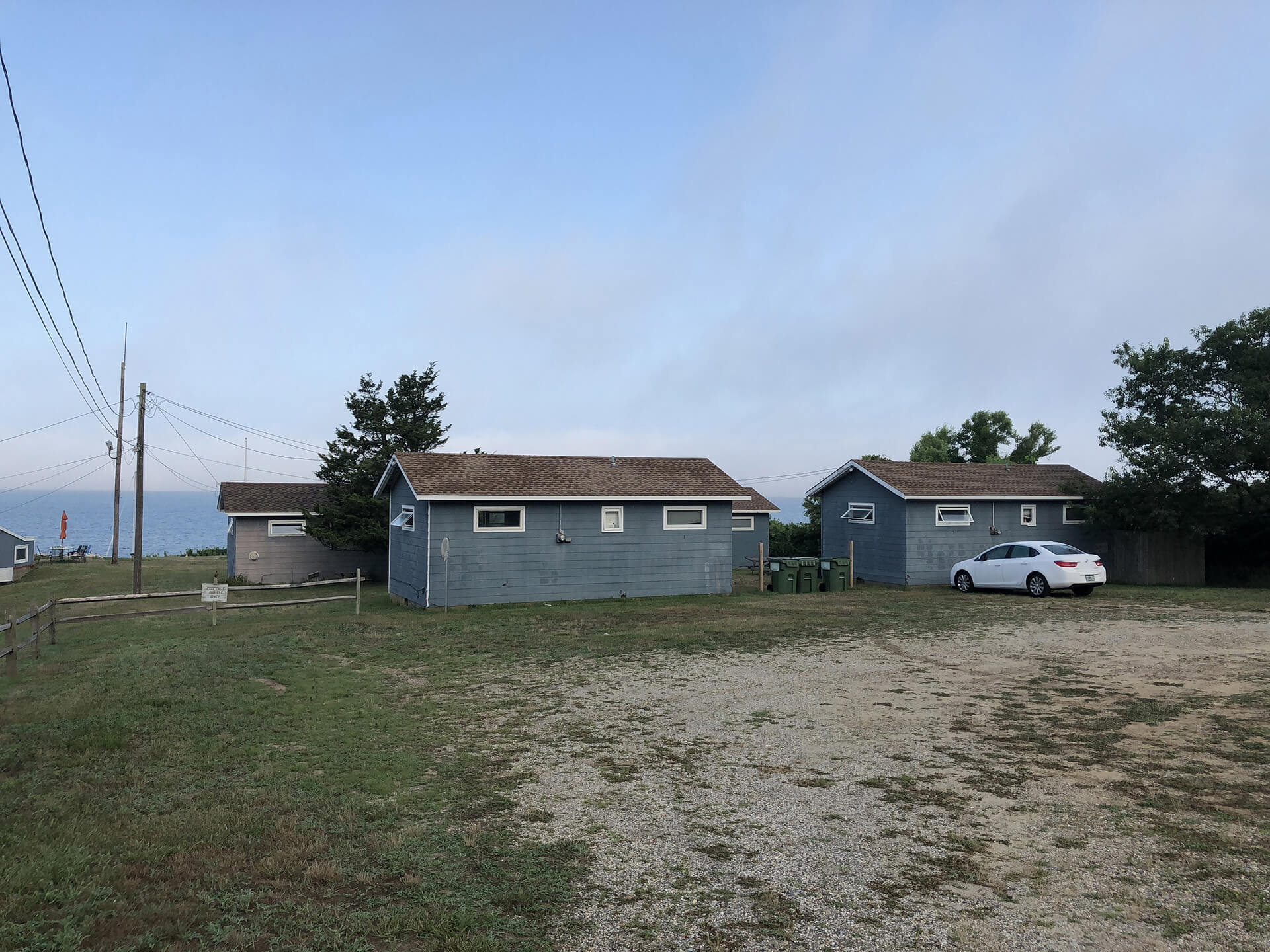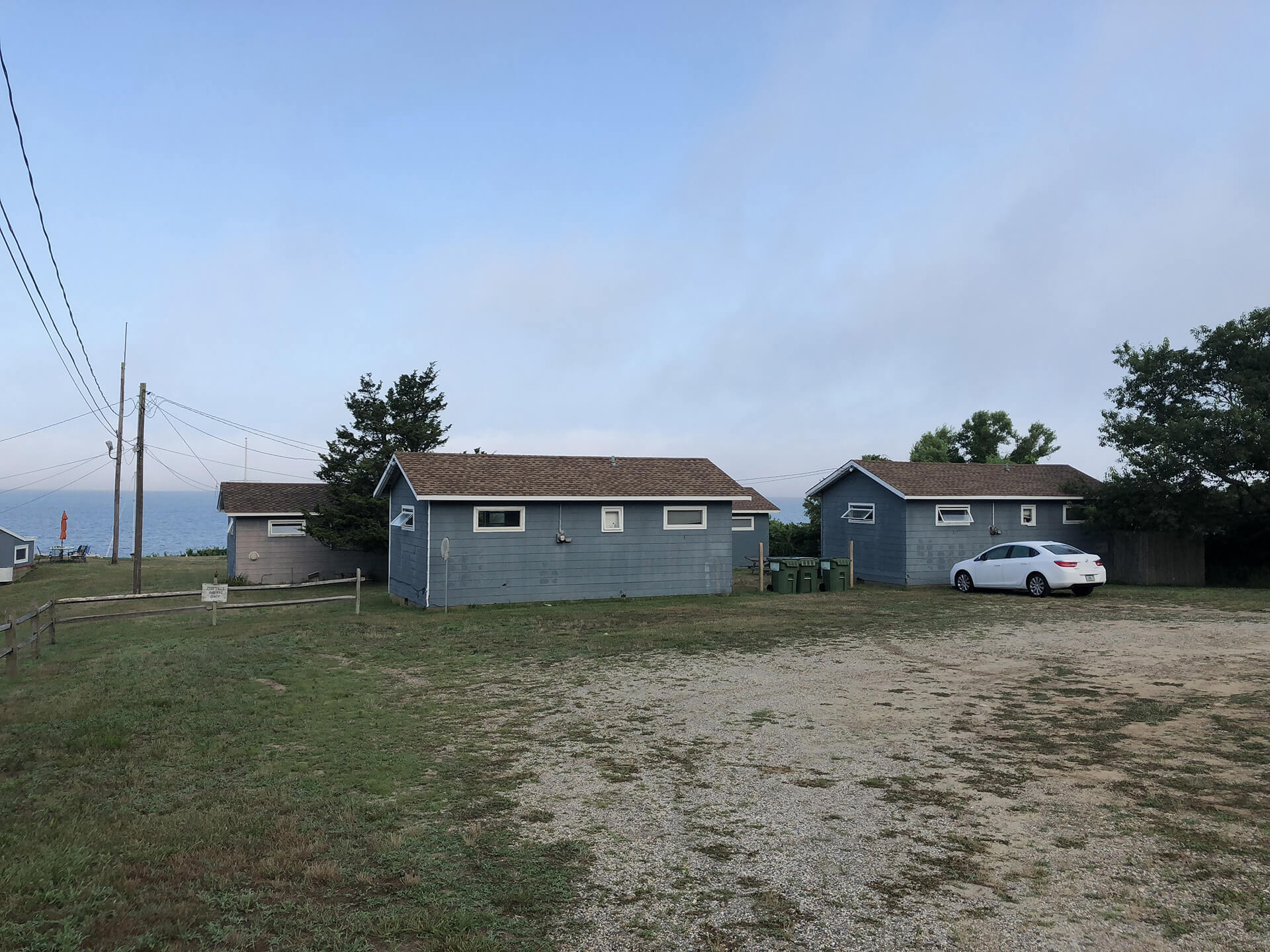Judge Sides With Rowan, Development Can Begin


Marc Rowan, the billionaire cofounder of the private equity firm Apollo Global Management, can develop his Montauk property at 80 Firestone Road facing Fort Pond Bay as planned. A New York State Supreme Court justice rejected an East Hampton Town Zoning Board of Appeals finding that a ridge of land running perpendicular to the water constituted a bluff.
Rowan had first come before the town’s planning board with a design by architect Viola Rouhani of Stelle Lomont Rouhani Architects that called for the replacement of the property’s four roughly 400-square-foot single-story cottages, built in 1960, with two significantly larger two-story houses, along with a third larger one-story cottage. Each structure would have its own pool. The layout of the structures, Rouhani told the planning board, was staggered, meaning all three had views of the bay.
Before anything could happen on the property, though, the nature of a ridge of land had to be determined. If it was a bluff, setback variances would be needed. If not, no variances would be required.
Anne Glennon, the town’s head building inspector, agreed with the planning department’s finding that the ridge was, indeed, a bluff. Rowan challenged that decision before the ZBA.
There was a caveat with that challenge, however: John Whelan, the ZBA’s chairman, works with Rouhani’s firm, and recused himself from the matter. While New York State code allows towns to have alternate members for appointed boards like the ZBA, there is no such provision in the East Hampton Town code. That meant four members would weigh the question. Because it was an appeal of a decision, a majority of the board would have to find for Rowan.
Instead, the board deadlocked on the question, 2-2, leaving the building inspector’s decision standing. In 2017, the board agreed to reopen the hearing when Joel Halsey, one of Rowan’s representatives, came forward with new documentation addressing the question. The new documents led to the same result. Rowan’s appeal was denied.
Rowan than sued in New York State Supreme Court. There, Justice Joseph Pastoressa acted as tie-breaker. The town, in upholding the building inspector’s decision, argued that while the topographical feature in question did not face the bay, there were wetlands nearby. “There is no evidence that the wetlands are sufficient to constitute a body of water,” the court found. “Any ambiguities in a zoning ordinance must be resolved in favor of the property owner,” Justice Pastoressa wrote in his July 16 decision, finding for Rowan.
Rowan has invested heavily in Montauk properties over the past several years. He owns Duryea’s dock, for which a proposed expansion has been tabled for the past few years. He owns other properties facing Fort Pond, including the one in question, as well as the old Neptune Motel in downtown Montauk, where he houses his summer employees.
t.e@indyeastend.com



